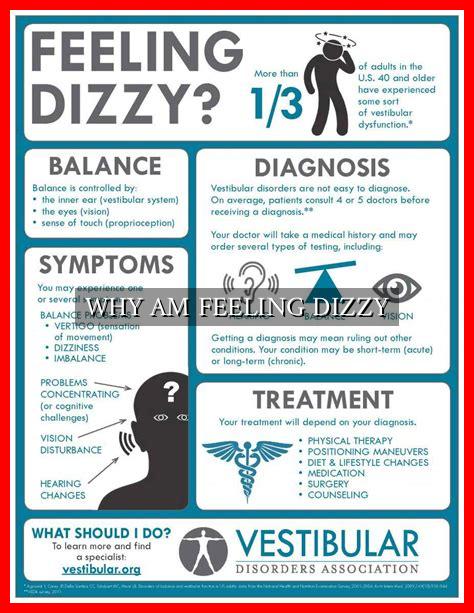-
Table of Contents
Why Am I Feeling Dizzy?
Feeling dizzy can be a disorienting and unsettling experience. It can range from a mild sensation of lightheadedness to a severe spinning sensation that makes it difficult to stand or walk. There are various reasons why you might be feeling dizzy, and it’s important to understand the potential causes in order to address the issue effectively.
Inner Ear Problems
One common cause of dizziness is inner ear problems. The inner ear plays a crucial role in maintaining balance, and any disruption in its function can lead to feelings of dizziness. Conditions such as benign paroxysmal positional vertigo (BPPV), Meniere’s disease, and vestibular neuritis can all cause dizziness due to inner ear issues.
Dehydration
Another common cause of dizziness is dehydration.
. When your body doesn’t have enough fluids, it can affect your blood pressure and lead to feelings of lightheadedness and dizziness. It’s important to stay hydrated throughout the day, especially in hot weather or during physical activity, to prevent dehydration-related dizziness.
Low Blood Sugar
Low blood sugar, also known as hypoglycemia, can cause dizziness, weakness, and confusion. This is particularly common in individuals with diabetes who may experience a drop in blood sugar levels if they haven’t eaten enough or have taken too much insulin. Eating regular meals and snacks can help stabilize blood sugar levels and prevent dizziness.
Anemia
Anemia is a condition characterized by a lack of healthy red blood cells, which are responsible for carrying oxygen to the body’s tissues. When your body doesn’t have enough oxygen, it can lead to symptoms such as fatigue, weakness, and dizziness. Anemia can be caused by various factors, including iron deficiency, vitamin B12 deficiency, and chronic diseases.
Medication Side Effects
Some medications can cause dizziness as a side effect. This is particularly common with medications that affect blood pressure, such as antihypertensives, or medications that have a sedative effect, such as certain antidepressants or antipsychotics. If you experience dizziness after starting a new medication, it’s important to speak with your healthcare provider to discuss potential alternatives.
Summary
Feeling dizzy can be a symptom of various underlying issues, ranging from inner ear problems to dehydration, low blood sugar, anemia, or medication side effects. It’s important to pay attention to your body and seek medical advice if you experience frequent or severe dizziness. By addressing the root cause of your dizziness, you can take steps to improve your overall well-being and quality of life.





